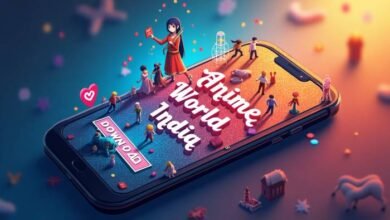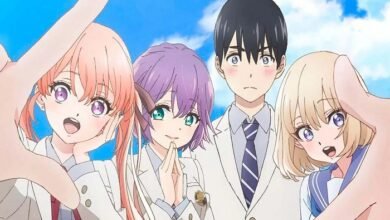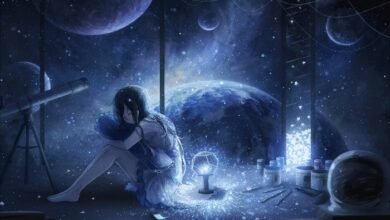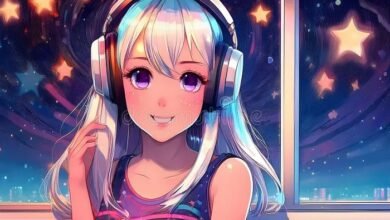
The concept of a Toon God revolves around the idea of animated characters that hold divine or larger-than-life abilities within their fictional worlds. These characters often embody humor, exaggeration, and charm that captivate audiences of all ages. From their engaging personalities to their remarkable antics, Toon Gods provide a universal source of joy and inspiration, making them a cherished part of modern storytelling.
To understand the true essence of a ToonGod, one must look beyond just their animated appearance. They symbolize creativity, freedom, and the power of imagination. Whether it’s a classic cartoon character or a modern animated figure, each ToonGod brings something unique to the screen, allowing viewers to connect with them on various levels.
The Origins of the Toon God
The origins of the Toon God concept can be traced back to the dawn of animation. Characters like Mickey Mouse and Bugs Bunny introduced audiences to anthropomorphism, where animals exhibit human traits and emotions. This innovation in storytelling laid the groundwork for a new genre of entertainment that has evolved over the years.
During the early 20th century, animated shorts became a staple for families. The playful antics of these Toon Gods captivated viewers, leading to the creation of iconic franchises that continue to thrive today. The continual introduction of new characters reflects society’s evolving values and interests, ensuring a lasting presence in popular culture.
Characteristics that Define the Toon God
To truly grasp the essence of a Toon God, several defining characteristics come to light:
- Humor: A ToonGod often uses comedy to engage the audience. Their exaggerated actions and witty dialogues create laughter and joy.
- Relatability: Despite their extraordinary abilities, many ToonGods represent relatable aspects of life, from family dynamics to friendship struggles.
- Exaggeration: Toon Gods often exist in a world where the laws of physics don’t apply. Their ability to stretch, squash, and bounce adds a layer of excitement to their adventures.
- Inspiration: Many ToonGods embody positivity, encouraging viewers to embrace creativity and express themselves without restrictions.
These characteristics combine to form characters that resonate deeply with audiences, making them beloved figures in both children’s and adult entertainment.
Notable Toon Gods in Pop Culture
Throughout animation history, various characters have earned the title of Toon God. Here are some notable examples:
- Mickey Mouse: As the original Toon God, Mickey’s charm and adventurous spirit have made him an enduring symbol of creativity for generations.
- SpongeBob SquarePants: This unique character has captivated young audiences with his infectious laughter and positive attitude, reinforcing themes of friendship and loyalty.
- Looney Tunes Gang: Characters like Bugs Bunny, Daffy Duck, and Tweety Bird continue to be icons, each representing distinct traits that contribute to the hilarity of their stories.
- Shrek: Not only a twist on classic fairy tales, but Shrek also embodies themes of acceptance and understanding, making him a modern-day ToonGod for all ages.
These Toon Gods go beyond entertainment; they shape cultural norms, inspire creativity, and create a sense of belonging through shared laughter.
Origins of the Toon God in Classic Animation
| Era / Period | Key Shows & Characters | Characteristics Displayed | Relation to the Toon God Concept |
|---|---|---|---|
| 1930s–1940s | Looney Tunes, Merrie Melodies Characters: Bugs Bunny, Daffy Duck | Exaggerated motion, logic-defying gags, infinite resilience | These characters laid the foundation for the Toon God through their disregard for physical laws. |
| 1950s | Tom and Jerry, Tex Avery Cartoons | Reality distortion, endless regeneration, slapstick chaos | Tex Avery’s works pushed the boundaries of logic, adding divine-like power traits seen in the ToonGod. |
| 1960s–1970s | The Pink Panther, Wile E. Coyote & Road Runner | Absurd cause-effect gags, narrative subversion | These characters emphasized the ToonGod’s ability to manipulate fate and outcomes. |
| 1980s | Who Framed Roger Rabbit | Meta-awareness, cross-cartoon universe, toon logic | Roger Rabbit introduced the idea of a ToonGod navigating between reality and fiction. |
| 1990s | Animaniacs, Freakazoid! | Fourth-wall breaking, hyper-awareness, chaos comedy | These shows made the Toon God more explicit through direct audience engagement and surreal humor. |
| Legacy Impact | N/A | Mix of humor, power, and narrative freedom | The ToonGod became a cultural archetype symbolizing limitless creative power in animation. |
Creating Your Own Toon God
Creating your own Toon God can be a fun and rewarding experience. Here are a few steps to consider:
- Identify Traits: Decide what unique characteristics your ToonGod will have. Will they be humorous, wise, mischievous, or adventurous?
- Designing the Appearance: Sketch out your character. Think about vibrant colors and exaggerated features that will capture the essence of your ToonGod.
- Craft a Backstory: Every great character has a story. What journey led to them becoming a ToonGod? This helps build a connection with your audience.
- Develop a Catchphrase: Memorable lines or playful sayings can add to their character and increase their appeal among fans.
- Storytelling: Create engaging stories that highlight the adventures of your Toon God, using humor and relatability to keep your audience entertained.
By following these steps, anyone can create a character that embodies the qualities of a Toon God, bringing new and fresh stories to life in the animation world.
The Future of Toon Gods in Animation
As technology evolves, the realm of animation grows with it. The future of ToonGods looks promising, as advancements in CGI and virtual reality open up new possibilities for character development and animated storytelling. Audiences are increasingly seeking fresh content that resonates with contemporary issues, which encourages creators to innovate.
- Diverse Representation: The future may also see a broader range of characters reflecting global cultures, languages, and experiences, ensuring that everyone can find a ToonGod they relate to.
- Interactive Experiences: With the rise of interactive media, audiences may be able to engage with Toon Gods in ways never seen before. Imagine diving into an animated world and experiencing these characters firsthand!
This evolution means that the ToonGod concept will continue to adapt and inspire generations, fostering creativity and joy for years to come.
Conclusion
In summary, the concept of the Toon God encompasses characters that embody creativity, humor, and relatability within the animated sphere. From their rich origins to their defining characteristics, ToonGods hold a cherished place in our culture, captivating audiences with their delightful escapades. Whether you’re inspired to create your own Toon God or simply enjoy the tales of legendary characters, the world of animation continues to thrive, offering infinite possibilities for laughter and connection. Embrace your creativity and maybe even share your ideas with others; you might be the next one to create a beloved ToonGod!




